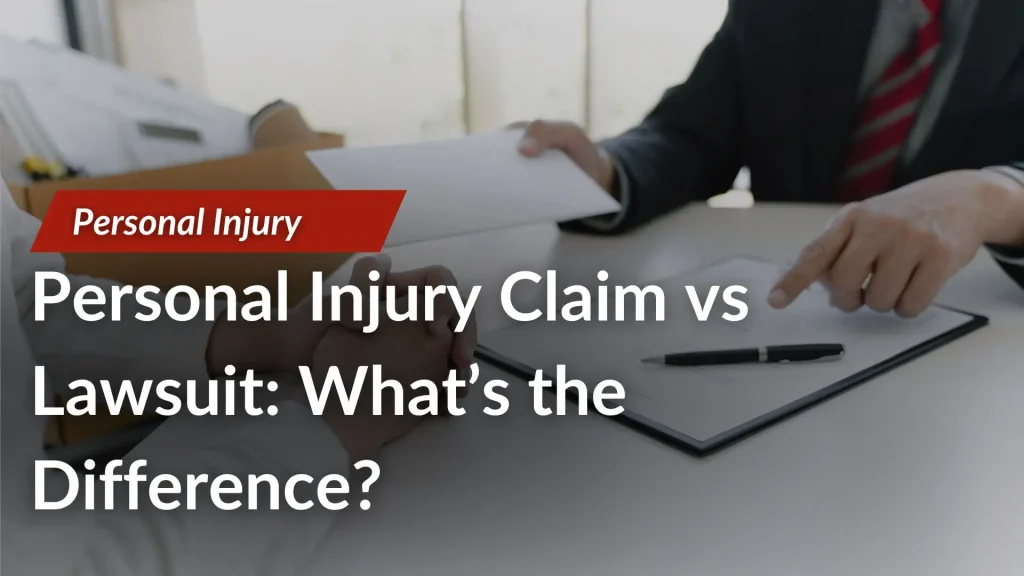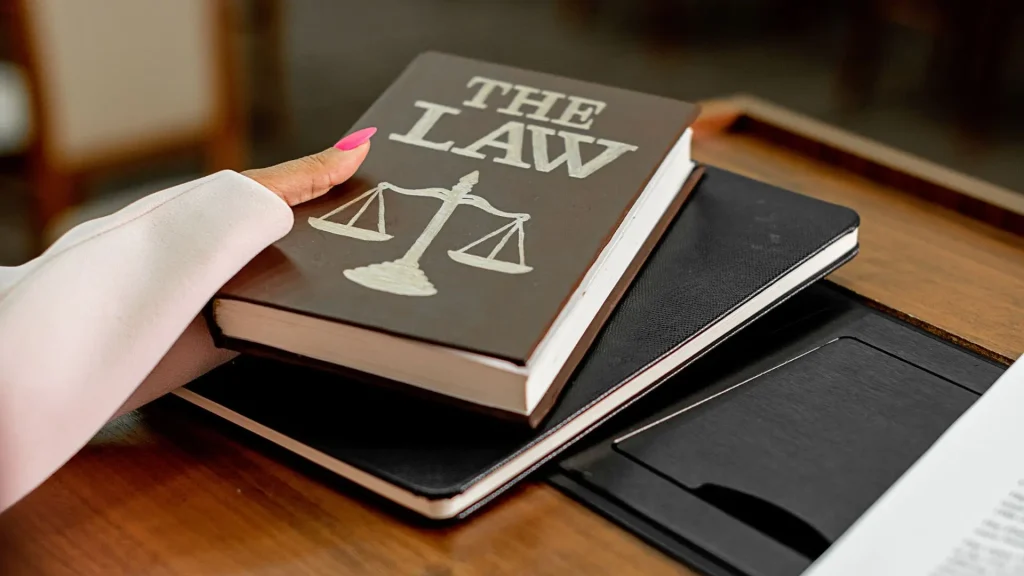 You might wonder what to do next if you sustained an injury because of someone else’s carelessness. Should you file an insurance claim, or must you take your case to court by filing a lawsuit? Understanding the difference between a personal injury claim vs lawsuit can be confusing. However, knowing how each process works is important to recover full compensation for your losses.
You might wonder what to do next if you sustained an injury because of someone else’s carelessness. Should you file an insurance claim, or must you take your case to court by filing a lawsuit? Understanding the difference between a personal injury claim vs lawsuit can be confusing. However, knowing how each process works is important to recover full compensation for your losses.
The Tampa personal injury attorneys at Jurewitz Law Group Injury & Accident Lawyers are ready to answer your questions about Florida personal injury cases. Knowing the right steps to take can help you protect your rights and get fair compensation for your medical bills, lost income, and other losses. Following is information about what sets a claim apart from a lawsuit.
What Does Filing a Claim Mean After an Accident?
In Florida, you’d file a claim with your insurer if you were injured in a car crash. Your claim would be covered under your personal injury protection (PIP) policy. When you’ve exhausted that coverage, or if your injury results in significant and permanent disfigurement, scarring or losses of a bodily system, you can then turn to the at-fault party’s insurer for additional money.
You’d file an insurance claim with the at-fault party’s insurer so they will pay for your losses. Those losses may include your medical bills, property damage, lost wages, and more depending on your injuries and other factors.
Filing an insurance claim aims to recover compensation for your losses without going to court. A claim starts negotiations between you and the insurance company. This is often the first step in recovering the money you need after an accident.
Steps in an Insurance Claim
If you’ve never filed an insurance claim before, here are the basic steps in the process:
- Notify the Insurance Company – The first step is to notify the insurance company about the accident. Do this as soon as possible. You’ll need to provide details like when and where the accident happened, who was involved, and a brief description of what occurred. The insurance company will then open a claim and assign a claims adjuster to your case.
- Submit Documentation – After notifying the insurance company, you must submit evidence to support your claim. This might include incident reports from the location or business where the accident occurred, police reports, medical records, repair estimates for your vehicle, and any other evidence that shows the extent of your losses. The more detailed and organized your documentation, the stronger your claim.
- Investigation by the Insurance Company – The claims adjuster will investigate the accident to determine who caused it and assess your losses. They may interview witnesses, review police reports, and inspect the damage to your vehicle or property.
- Negotiation – Once the adjuster completes their investigation, the insurance company may offer a settlement. The initial offer is often lower than expected, so it’s crucial to review it carefully. You can negotiate higher if you believe the offer doesn’t fully cover your losses.
- Settlement or Denial – If you and the insurance company agree on a settlement amount, the insurance company will issue a payment to cover your losses. However, if the insurance company denies your claim or you can’t reach a fair deal, you may need to consider other legal actions, such as filing a lawsuit.
What Happens When You File a Personal Injury Lawsuit

Most Tampa personal injury cases end in settlements before the case reaches the trial stage. Trials are expensive, time-consuming, and unpredictable, making a settlement the preferred option in most circumstances. However, if the insurance company doesn’t make a fair settlement offer, you may need to take them to court to protect your rights. Here’s what happens when you file a personal injury lawsuit in Tampa:
Steps in a Personal Injury Lawsuit
- Filing the Complaint – The trial process begins when your attorney files a complaint with the court. This document outlines your claim against the at-fault party, detailing how their negligence or wrongdoing caused your injuries and what compensation you’re seeking. The defendant then has a chance to respond to the complaint.
- Discovery Phase – During discovery, both sides gather evidence to support their case and exchange whatever evidence they collect. This phase involves exchanging documents, answering written questions, and conducting depositions where witnesses provide sworn testimony. Discovery allows both parties to fully understand the facts before going to trial.
- Pre-Trial Motions – Before the trial begins, either side can file motions to resolve certain issues. For example, they might request the court to dismiss the case or exclude certain evidence. These motions can shape how the trial will proceed and may even lead to a settlement before trial.
- Settlement Negotiations – At any point during the lawsuit, both sides can negotiate a settlement to avoid going to trial. Settlement discussions often intensify after discovery, as both sides have a clearer picture of their case’s strengths and weaknesses.
- Trial – If the case doesn’t settle, it goes to trial, where both sides present their evidence and arguments to a judge or jury, who then reaches a verdict.
- Post-Trial Motions and Appeals – After the verdict, either party can file post-trial motions to challenge the outcome, such as requesting a new trial or asking the court to alter the judgment. If either party believes there was a legal error during the trial, they can appeal the decision to a higher court.
How We Can Help with a Personal Injury Claim or Lawsuit
The Tampa personal injury lawyers of Jurewitz Law Group Injury & Accident Lawyers can guide you through your personal injury claim or lawsuit. Our experienced team will carefully evaluate your case, explaining your legal options and what you can expect. We know dealing with insurance companies can be overwhelming, so we’ll handle the negotiations on your behalf to pursue fair compensation for your losses.
If your case looks like it might go to trial, we can help you decide if that’s the right path. We can prepare your case, present your evidence clearly to a judge or jury, and advocate for your best interests in court.
Whether you’re filing a claim or considering a lawsuit, our law firm can handle your case, letting you focus on your recovery. Call (619) 233-5020 now or complete our contact form for a free consultation.
Related Posts:
Can You Reopen a Closed Insurance Claim in Florida?
When Is It Too Late to Go to the Doctor After a Car Accident?
The Legal Process for Filing a Wrongful Death Lawsuit in Florida


